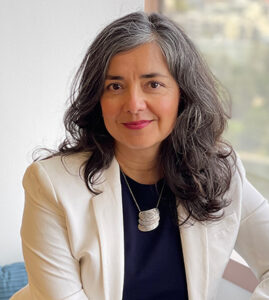News & Commentary
What We’re Reading: Systems Change
 “I think about systems change in two parts. First, there is seeing the system for what it is, and recognizing the structures, policies, practices, narratives, and cultures keeping the system intact. The second part is truly understanding the change we as a foundation want to make,” says Elizabeth González, Ph.D., chief program and strategy officer at College Futures Foundation (pictured right).
“I think about systems change in two parts. First, there is seeing the system for what it is, and recognizing the structures, policies, practices, narratives, and cultures keeping the system intact. The second part is truly understanding the change we as a foundation want to make,” says Elizabeth González, Ph.D., chief program and strategy officer at College Futures Foundation (pictured right).
“These readings invite changemakers to learn what holds a system in place — including the mindsets of those within and without — and they offer funders an opportunity to really examine their roles and strategies in systems change efforts. Higher education is a system that, by design, does not serve all students. College Futures Foundation is one part of a vast, powerful movement to improve outcomes for California’s diverse students and it is our responsibility to be clear about what we are trying to change within the higher education system and most importantly, how that change happens. While grantmaking is one tool we use at the foundation, we also believe voice, power-sharing, and providing spaces for changemakers — advocates, practitioners, researchers, learners — to build relationships and connect the dots are essential to enable change. Fundamentally, this work is about people and partnership,” said Dr. González.
Our team is currently reading the following pieces on systems change:
The Water of Systems Change
John Kania, Mark Kramer, Peter Senge
“When policies, practices or beliefs remain in place across long periods of time and wide expanses of geography, they are typically supported by durable beliefs, norms, power structures, or other stable systems.”
Moving the Needle or Spinning Our Wheels? A Framework for Long-Lasting, Equitable Change in Education
Heather McCambly, Eleanor R. Anderson
“Moreover, since the less explicit conditions are the most challenging to clarify but can have huge impacts on shifting the system, changemakers must ensure that they pay sufficient attention to the relationships, power dynamics, and especially the underlying mental models (such as racism and gender biases) embedded in the systems in which they work.”
